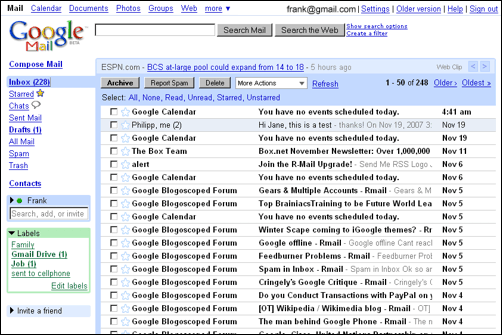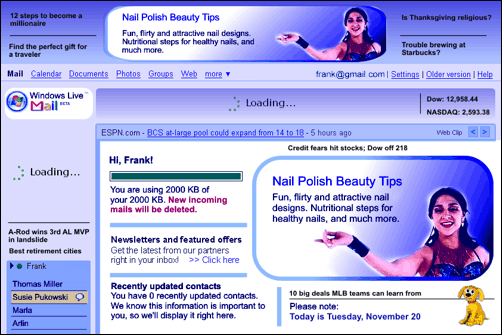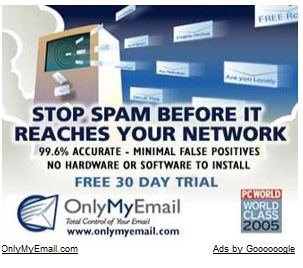There’s a new online Office player in town: Sabeer Bhatia, co-founder of Hotmail, the web-mail service that perfected viral marketing and got acquired by Microsoft for $400 million, unveiled his free web-office suite yesterday. It does not look at Google, Zoho or ThinkFree, it aims at Microsoft directly:
“We are just a few years away from the end of the shrink-wrapped software business. By 2010, people will not be buying software,” Mr Bhatia said. “This is a significant challenge to a proportion of Microsoft’s revenues.”
So be it – I am a certified web-app fanboy. I’m still waiting for my trial account (and wonder if I will ever get it after this post) , so I can’t comment on the applications themselves, but I think Mr. Bhatia’s choice of a name is rather tasteless: Live Documents. What’s wrong with that? Nothing.. except the close resemblance to Microsoft’s Windows Live brand. I only have “conspiracy theories” here:
- Live Documents is a shameless rip-off of the MS brand, Mr. Bhatia is literally biting the hand that fed him and indirectly funded this company.
- He is riding on Microsoft’s coat-tails: his application is (supposedly) very similar to MS Office 2007, he offers a plug-in to the MS products, uses the MS Office logo quite liberally throughout his site, people know his background with MS – all this creates the impression that his products is somehow jointly developed with Microsoft. (?) While this may help gaining traction initially, I think confusing customers is a very-very bad policy. (But what do I know, I haven’s sold a business for $400M
 )
) - Finally, the most far-fetched speculation: this is indeed Microsoft’s secret weapon, named appropriately so it fits easily after it’s absorbed in a $billion+ deal.
I can’t wait to hear from Microsoft… Don? Cliff? Chris? Anyone?
Update (11/23): Dan Farber on ZDNEt came to the same conclusions – literally.
Update #2: As much as I don’t like the Live copycat, I have to admit calling it “service plus software” is a smart play on Microsoft’s “software plus service“, indicating the shift in priorities. 
Related stories: Times Online, Techspot, Macworld UK, PC Advisor, Digital Inspiration, Between the Lines, /Message, Rough Type , deal architect, Zoho Blogs, TECH.BLORGE.com, Read/WriteWeb, TechCrunch, Betaflow.





 often overlooked, probably since Google does not have anything to offer in these areas. But Zoho does, and in fact that’s the application that attracts the largest active user base. Creator allows non-tech-types (like yours truly) to
often overlooked, probably since Google does not have anything to offer in these areas. But Zoho does, and in fact that’s the application that attracts the largest active user base. Creator allows non-tech-types (like yours truly) to 

 Oh, and while I’m at it: all those
Oh, and while I’m at it: all those 
 Is this becoming a weekly ritual? Check your FeedBurner subscriber count: it’s likely down by roughly 40%.
Is this becoming a weekly ritual? Check your FeedBurner subscriber count: it’s likely down by roughly 40%.


Recent Comments